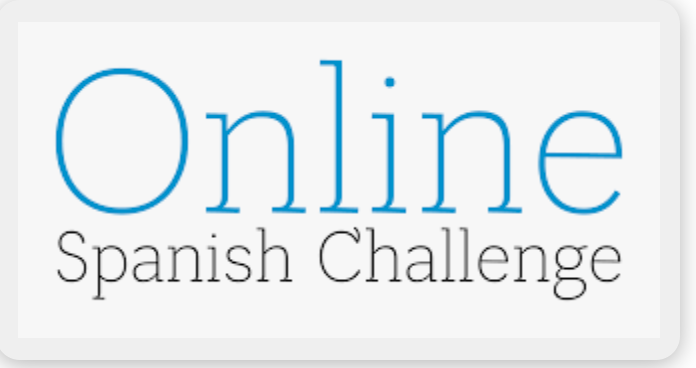10 Spanish 1
Section outline
-
Bienvenidos a la nueva clase 2023!!! This is going to be an exciting year full of fun, challenges, and lots of good times!

As Y10SPA1 class I have new expectations for you and for our class, in order to have a successful year in this class, we need to work together.
Please do not hesitate to contact me at mmartin@mhjc.school.nz if you have any questions or concerns about our planned activities or assessments. You chose to continue Spanish as an optional subject. This means your commitment to the language is really strong. We are going to learn Spanish twice a week, you will have two assessments per year. All of you have previous Spanish skills, we have the opportunity to work consistently to improve your Spanish knowledge this year.
-
EXPLORE / TŪHURA learning intentions:
- We are EXPLORING to ask and respond to information about events in the present
- We are EXPLORING to understand and talk about where, when, and how often activities take place
- We are EXPLORING ask for and respond to simple directions
- We are EXPLORING to compare and contrast people, places and things.
Hola chicos y chicas!
GROUP 1
We are going to start our Spanish context "All about you".

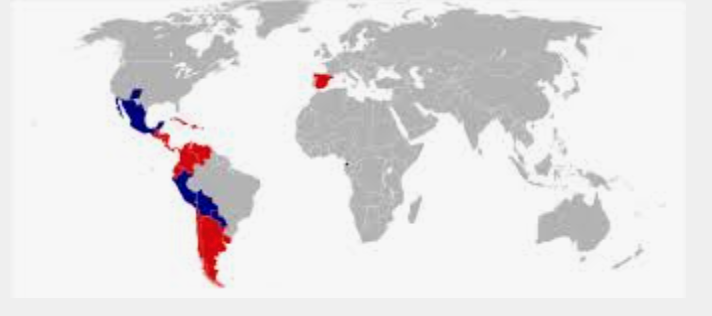
Learning Intention:
We are learning to ask and respond to personal information
Success Criteria:
Identify vocabulary for countries, at least 12 countries
I can say where I am from and give my nationality and where I live I can ask someone else where they are from and their nationality and where they live Apply the rules for verb ser. Activities:
- ¿De dónde eres?
- ¿Cuál es tu nacionalidad?
- ¿Dónde está Wally?
- Personal activity
-
EXPLORE / TŪHURA learning intentions:
- We are EXPLORING to ask and respond to information about events in the present
- We are EXPLORING to understand and talk about where, when, and how often activities take place
- We are EXPLORING ask for and respond to simple directions
- We are EXPLORING to compare and contrast people, places and things.
These weeks we will be looking at HOLIDAYS-VACACIONES.
SUCCESS CRITERIA
I will be able to say where I go on holiday.
I will be able to use opinions and justifications to describe where I go on holiday.
I will be able to write a paragraph about where I go on holiday, how I get there and who with.
ACTIVITIES
1. Flipchart
2. VOCABULARIO-LANGUAGE FEATURES
3. MATCH
4. TRANSLATE
5. UNJUMBLE
6. CONJUGATION7. KINAESTHETIC
8. CREATE YOUR OWN PARAGRAPH
-
EXPLORE / TŪHURA learning intentions:
- We are EXPLORING to ask and respond to information about events in the present
- We are EXPLORING to understand and talk about where, when, and how often activities take place
- We are EXPLORING ask for and respond to simple directions
- We are EXPLORING to compare and contrast people, places and things.
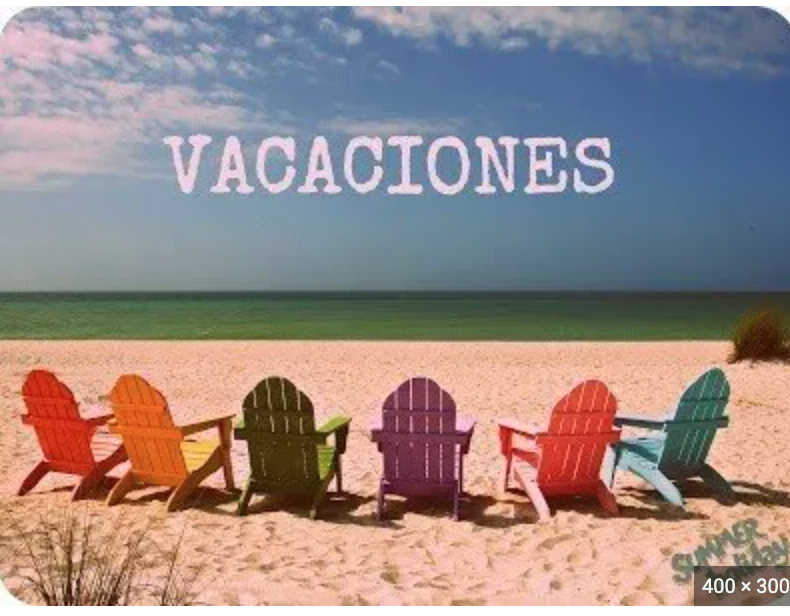
Las Vacaciones
This week we will continue learning to communicate in Spanish how our holidays are.
Success Criteria:
be able to recognize countries, transport and accommodation in Spanish
be able to say what a normal holiday is like
Activities
1. ¿Con quién sueles ir?
2. reorder and write down the following sentences which are all jumbled up!
3. ¿Qué te importa durante las vacaciones?
4. Vocabulario: se puede…
-
EXPLORE / TŪHURA learning intentions:
- We are EXPLORING to ask and respond to information about events in the present
- We are EXPLORING to understand and talk about where, when, and how often activities take place
- We are EXPLORING ask for and respond to simple directions
- We are EXPLORING to compare and contrast people, places and things.
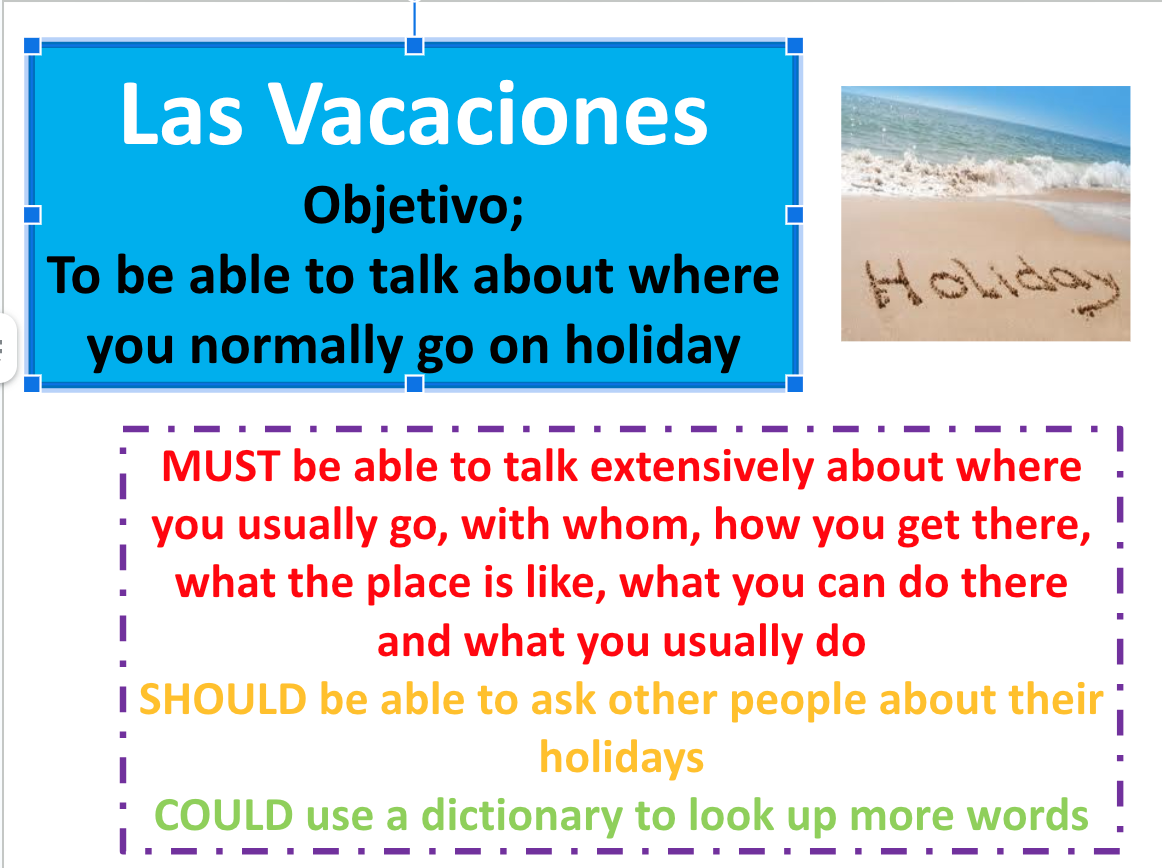
ACTIVITIES
1. Vocabulary
2. Writing frames
3. Reading activity
4. Speaking activity
5. Une los adverbios de tiempo
6. Fill in the gaps -
FOCUS / ARONGA learning intentions:
- We are FOCUSING on writing a speech in Spanish about New Zealand sightseeing
- We are FOCUSING on using language features to describe New Zealand in Spanish.
- We are FOCUSING...
DESCRIPTION OF YOUR CITY
Location
Está al sur de… It’s to the south of…
Está en la costa/el campo… It’s on the coast/in the countryside…
Está situado… It’s situated…
Se localiza en… It’s located…
2. Description and places of your city
Hay donde infinitive... There is where ….
Se puede... You can ...
hay mucho que hacer... There is a lot to do
Me gusta/ No me gusta/Me encanta......
Muy very
____ tiene un montón de atracciones como + (nombre).... ______ has tonnes of attractions such as...
La ciudad está lleno de + (nombres) ... The city is full of…
Es famosa por + (nombres) o (infinitivo).... It’s famous for....
Hay lugares de interés como + (nombre).... There are places to visit such as…
Weather:
En + (country) + adverb + Weather expression + season
-
PLAN & DO / WHAKAMAHI learning intentions:
- We are PLANNING to present our Spanish speech so that we can demonstrate our communication skills using the language features.
MAKE SURE YOUR SCRIPT INCLUDES
Your script could include the following:
What New Zealand is like, and your city in particular
Your opinion about what the students should see and do in New Zealand, with reasons
A description of a tourist activity in New Zealand that you would like to do
Advice on any cultural differences that the students may encounter
Where you will like to go for your next holiday in New Zealand, with reasons
2. Description and places of your city
Hay donde infinitive... There is where ….
Se puede... You can ...
hay mucho que hacer... There is a lot to do
Me gusta/ No me gusta/Me encanta......
Muy very
____ tiene un montón de atracciones como + (nombre).... ______ has tonnes of attractions such as...
La ciudad está lleno de + (nombres) ... The city is full of…
Es famosa por + (nombres) o (infinitivo).... It’s famous for....
Hay lugares de interés como + (nombre).... There are places to visit such as…
Weather:
En + (country) + adverb + Weather expression + season
-
PLAN & DO / WHAKAMAHI learning intentions:
- We are PLANNING to present our Spanish speech so that we can demonstrate our communication skills using the language features.
-
EXPLORE / TŪHURA learning intentions:
- We are EXPLORING different aspects of Spanish daily life.
- We are EXPLORING Spanish custom of bullfighting festivals.
- We are EXPLORING representation of bullfighting in art, dance and music.
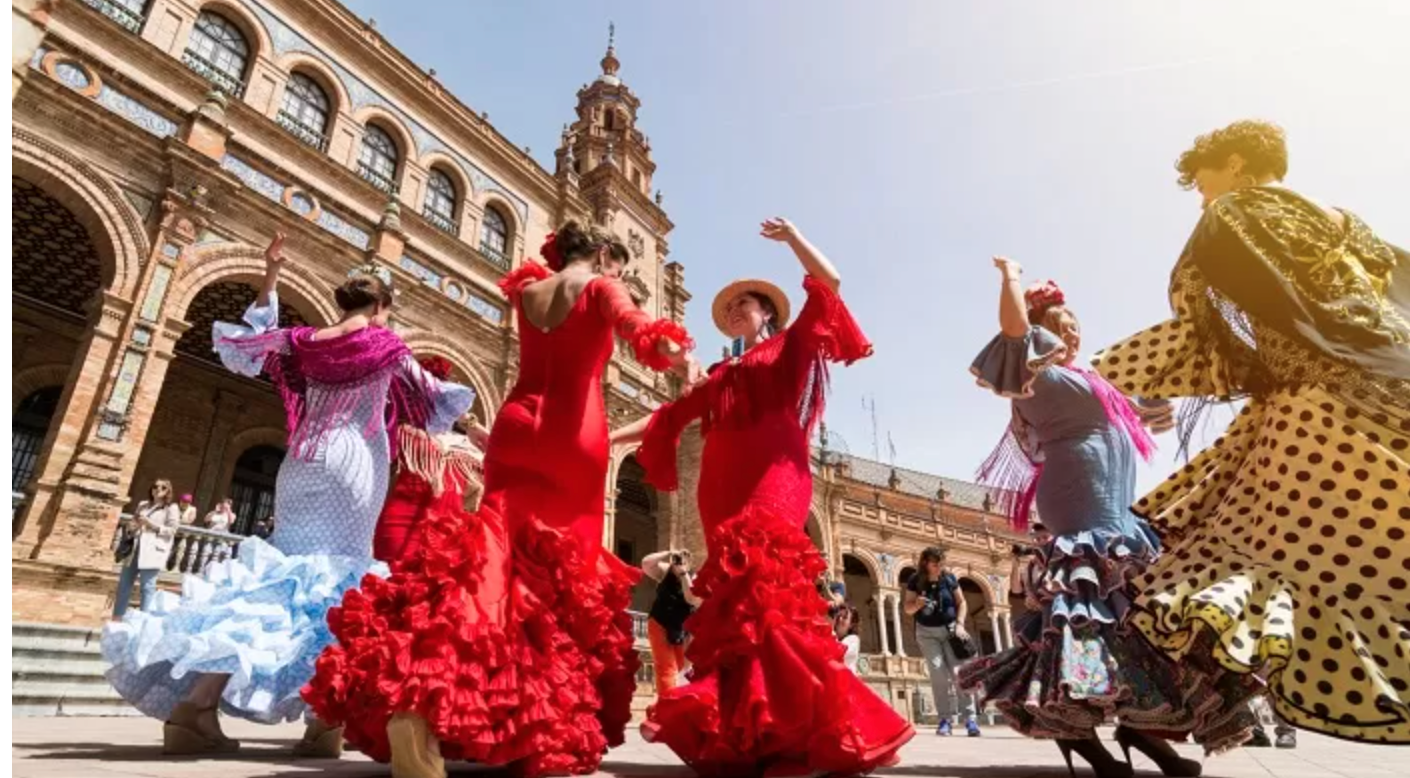
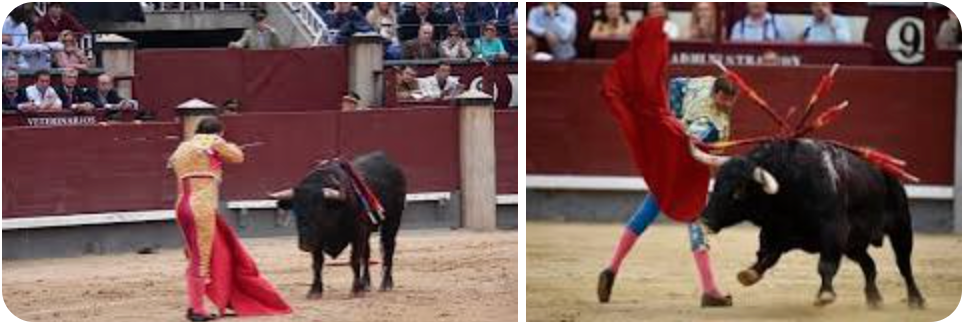
Introduction to Spain
To introduce Spanish cultureActivities
Introduction to bullfighting, watch a video and discuss. (link to literacy)
As a class, re-enact a bullfight.
Find out about the festival of San – Fermin in Pamplona
-
EXPLORE / TŪHURA learning intentions:
- We are EXPLORING Spanish vocabulary related to food items.
- We are EXPLORING to use appropriate food-related expressions and phrases in conversational situations.
- We are EXPLORING gain cultural awareness by exploring traditional Spanish dishes and dining customs.
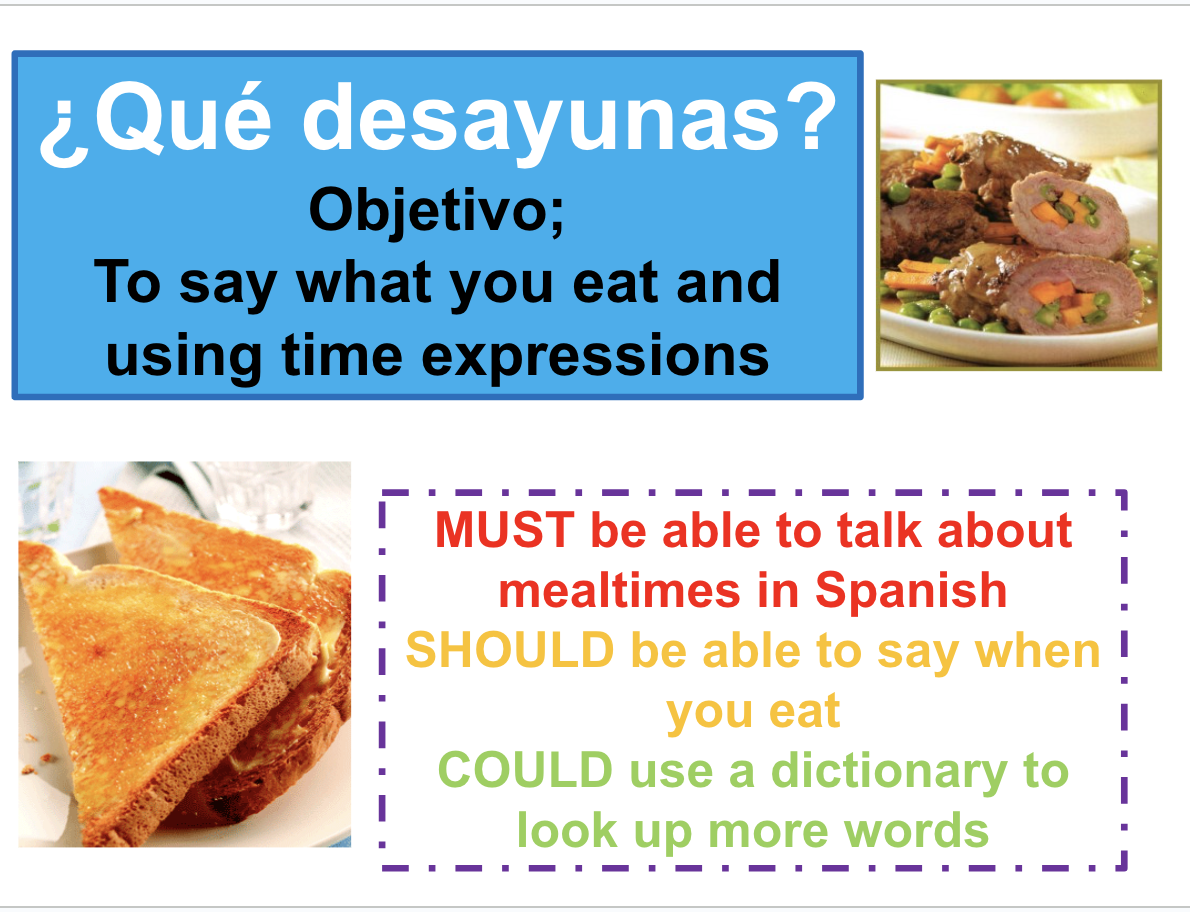
Success Criteria:
- I can say what I eat for each meal of the day
- I have learned and practiced Spanish vocabulary related to food items.
- I can use appropriate food-related expressions and phrases in conversational situations.
- I have developed my listening and speaking skills in Spanish while discussing food preferences and ordering in a restaurant setting.
1. Match the Spanish with the English: -
EXPLORE / TŪHURA learning intentions:
- We are EXPLORING Spanish vocabulary related to food items.
- We are EXPLORING to use appropriate food-related expressions and phrases in conversational situations.
- We are EXPLORING gain cultural awareness by exploring traditional Spanish dishes and dining customs.
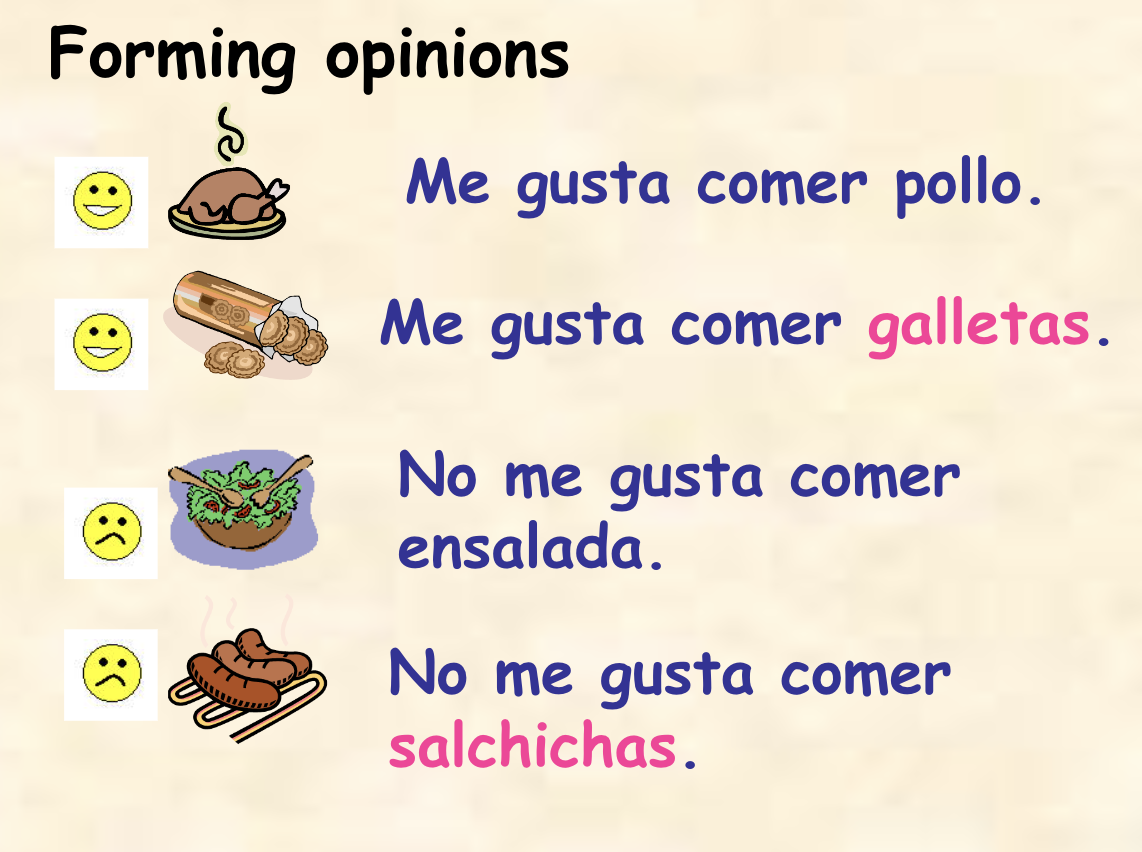
Learning Objective:
1. Be able to give opinions on items you eat and drink using the verb gustar.
2. Revise food vocabulary AND Make adjectives ‘agree’
Success Criteria:- I can identify and name a variety of food items in Spanish, including fruits, vegetables, meats, and beverages.
- I can construct sentences using food-related vocabulary and expressions in context.
- I can participate in role-plays or discussions related to food preferences, ordering food in a restaurant, and discussing meals with others.
- I can describe the ingredients and preparation methods of specific Spanish dishes.
- I can recognize and interpret basic food-related phrases in written and spoken texts.
- I can demonstrate cultural understanding by discussing Spanish eating habits, meal times, and customs.
-
PLAN & DO / WHAKAMAHI learning intentions:
- We are PLANNING a role play interacting in a Spanish restaurant so that we can order food in a Spanish enviroment
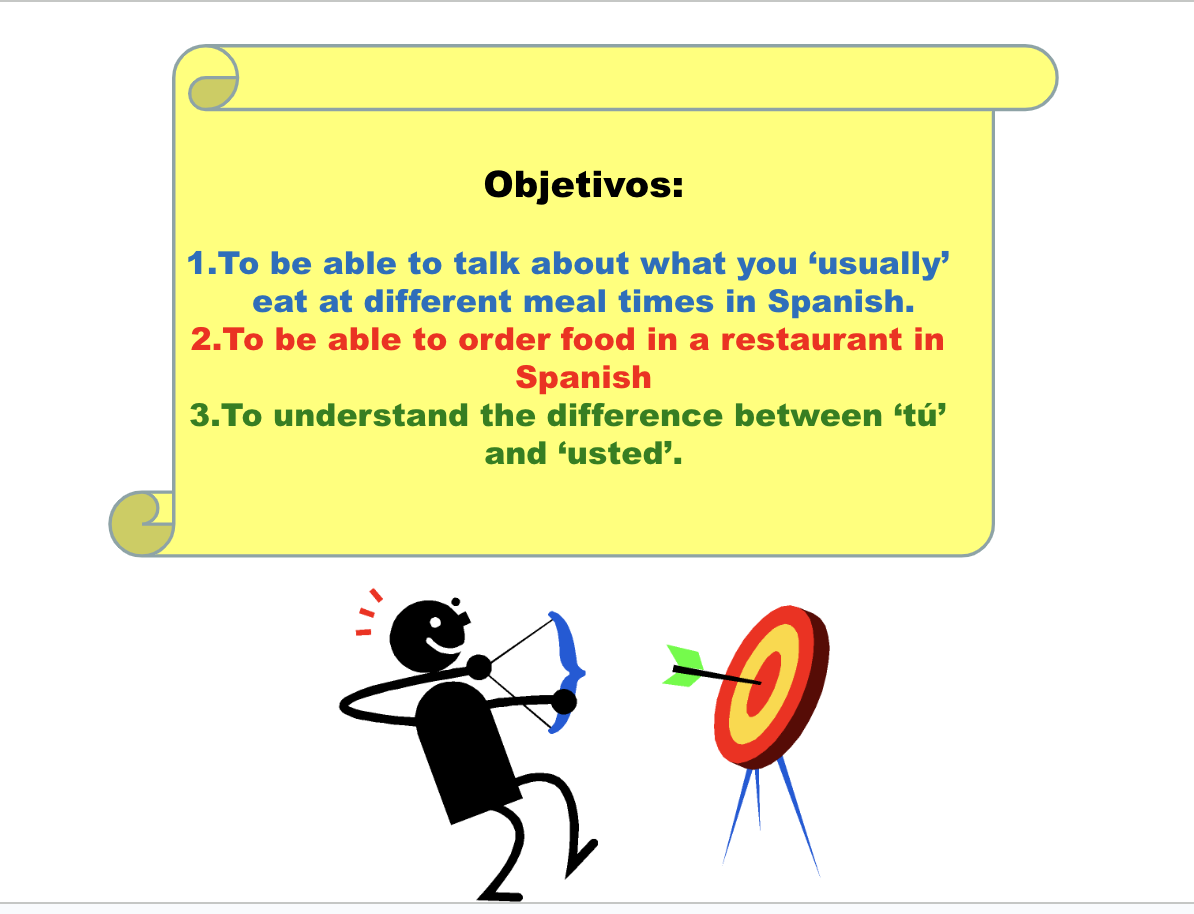
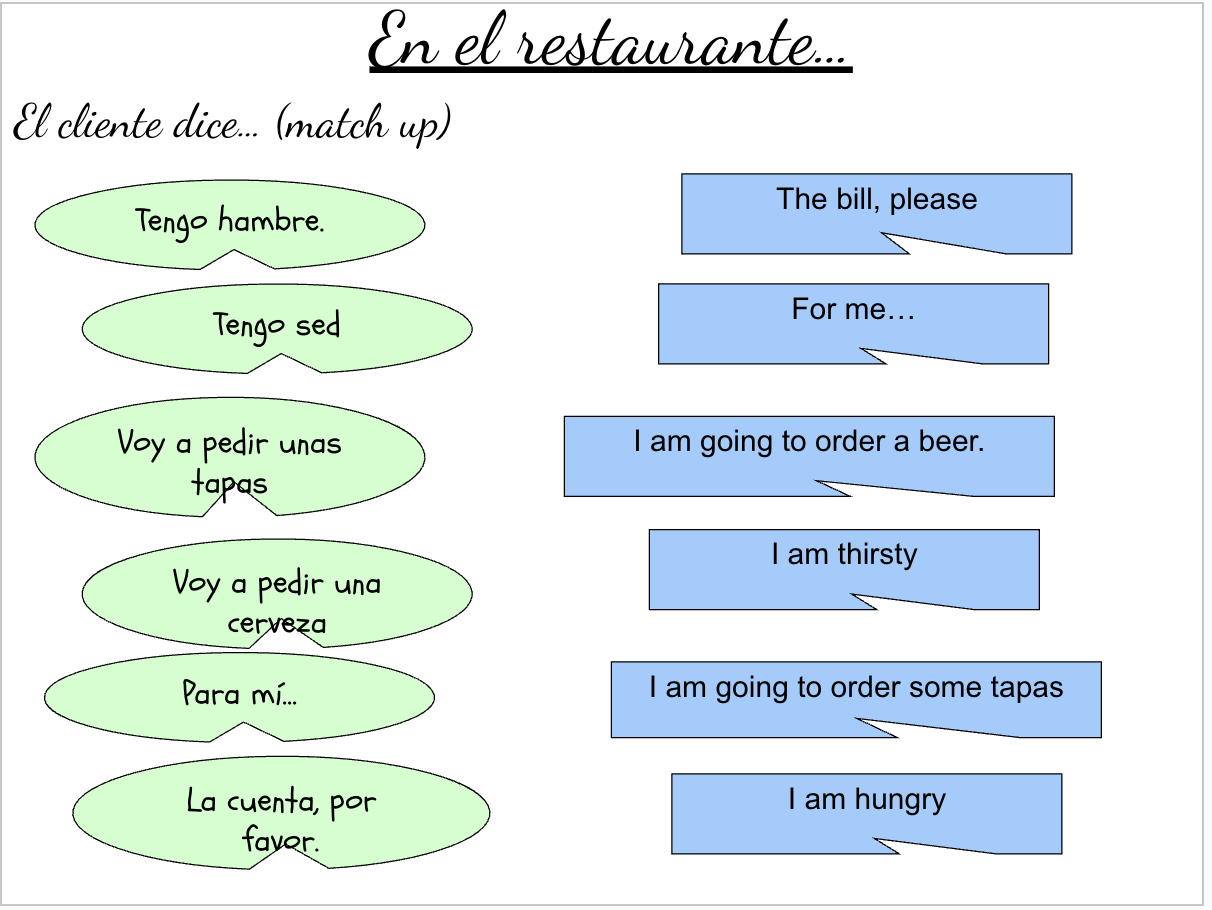
-
Senior’s Spanish Culture Project
Hola for these weeks we are going to be working on your Assessment 2Assessment Task
Each of you will select a culture topic (listed below or another topic, if approved, in advance) and research the cultural event/activity/group. You will prepare and present an oral report to the class on the researched topic. You may use posters, music, videos, or any other type of visual for the presentation and other items/props can be used to enhance the presentation. For example, food items may be part of the presentation but are NOT required.
When presenting you may use note cards to help remind you of the key points to discuss. The cards are not your script to be read.
This project will be worked on in class as well as outside of class.
Due date: Thursday Week 9
Assessment Instructions
Choose a topic from the list provided (if you have a different topic in mind, please ask)
Prepare your cultural presentation using the following suggestions
Check the rubric to ensure you have included the appropriate information.
-
Projects are Due this week!!!
Antonio/Melton
Reciting of a poem
Sahjbir/Eman/Hasan
Video
Bullfighting/history/bulls/ pros and cons/ where is bannned
Madina/Brianna
Rosalia video
Her life, who is she? Why is she so famous? Her uniqueness, video and song
Zara
Science board-Mexico
History aztecs and mayas-buildings-natural landmarks- mix of religion and ancient believes
Jasmine
Paper mache skull
Alisha
Tres leches video
Ingredients in Spanish
Photos of the process
-
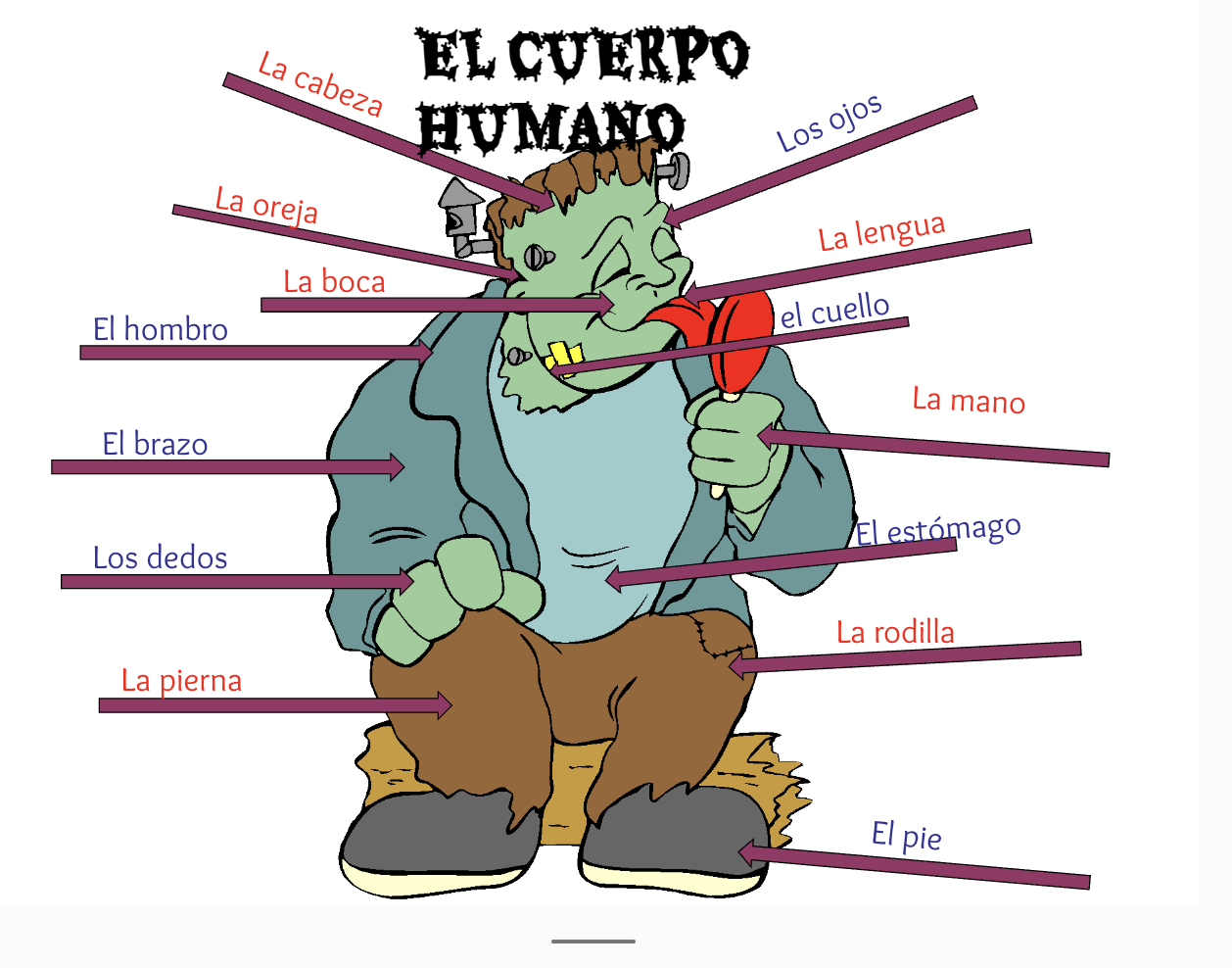
This week we are looking at the body parts, El cuerpo humano, you will be creating your own Frankenstein body.
Communication Functions:
Recognise, express, and ask about how you and others feel
Ask for, offer, accept, and refuse help
Recognise, express, and ask about obligations and advice
1. Your Frankenstein
2. Using all of the vocabulary we have learned in this lesson, make up your own role plays.You have a stomach ache
You have a fever
You have a cough and a sore throat
You are cold and you have earache
You have toothache
-
This week we are continuing with La Salud,
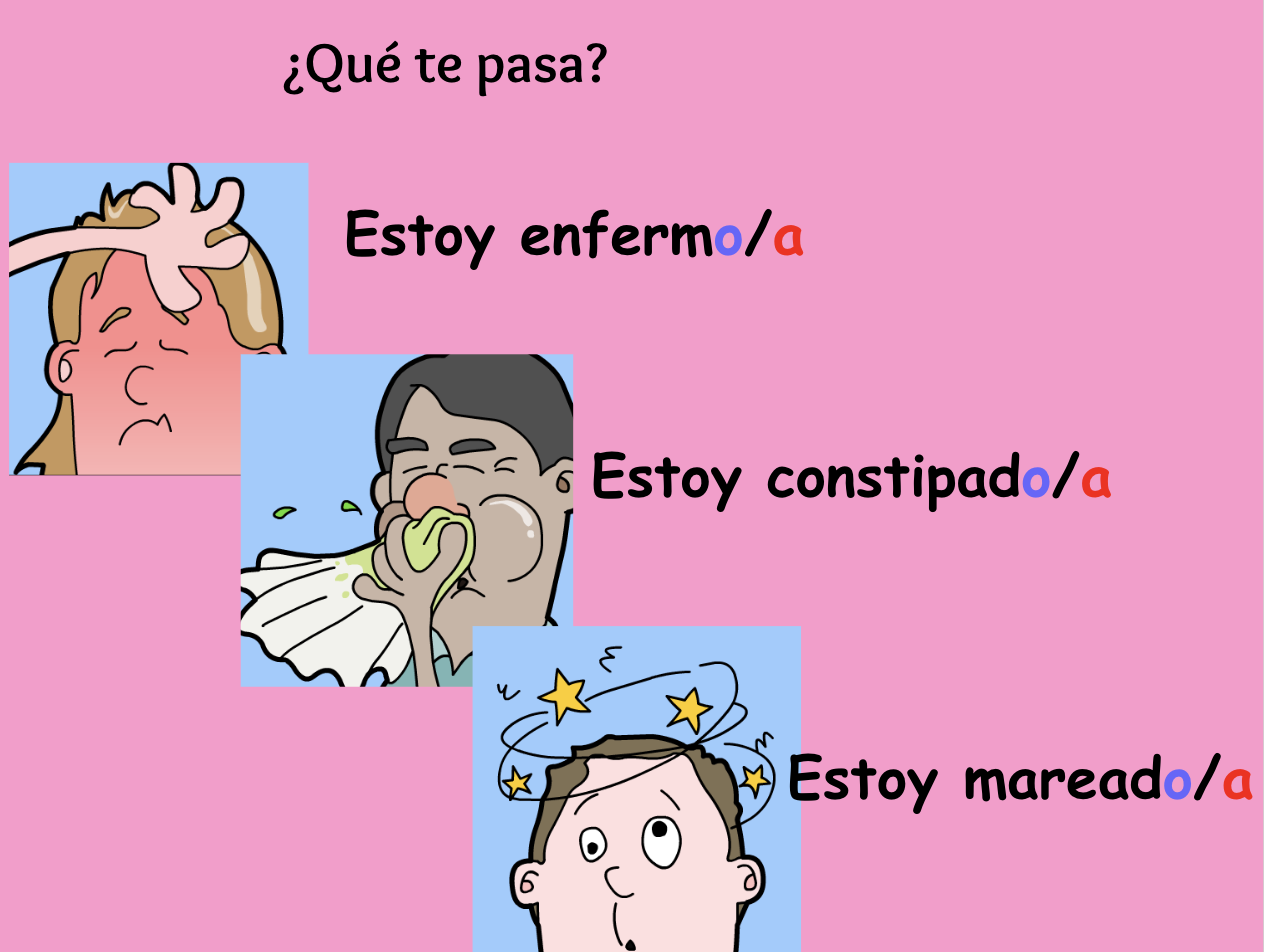
Success criteria
1. I can correctly identify and use a range of Spanish vocabulary related to illnesses, symptoms, and medical advice.
2. I can construct grammatically correct sentences in Spanish, using appropriate verb tenses, prepositions, and word order when discussing illnesses and advice from a doctor.
3. I can understand and respond to spoken Spanish related to illnesses and medical advice
Activities
Role-Playing and Communication:
Role-play activities, simulating doctor-patient interactions in Spanish. This includes accurately conveying symptoms, asking questions, and following medical advice.
-
This week we will build our understanding of the celebration El dia de los muertos, and we will focus to distinguish, compare and contrast between Día de los Muertos and Halloween.
Learning Intention:
We are learning to understand of the Mexican celebration of Día de los Muertos.
Success Criteria:
develop an overall understanding of the Mexican holiday, Día de los Muertos, including the history, origins, and significance of this celebration to people of Mexican origin recognize common traditions and activities associated with Día de los Muertos develop an open-mind and respectful attitude towards diverse ethnic groups learn about cultural diversity and multiculturalism in a positive way Activities:
- Comparison with Halloween
- Caption for the images
-
EXPLORE / TŪHURA learning intentions:
- We are EXPLORING Spanish culture through a web challenge
- We are EXPLORING to connect Spanish lifestyle through this challenge
- We are EXPLORING to recognise icons, symbols, fiestas from Spanish culture
During this week we will be doing a SPANISH WEB CHALLENGE
Success Criteria I can/have
- realise about connections between Spanish culture and my own culture,
- become familiar with famous Spanish artists and writers of art and literature.
